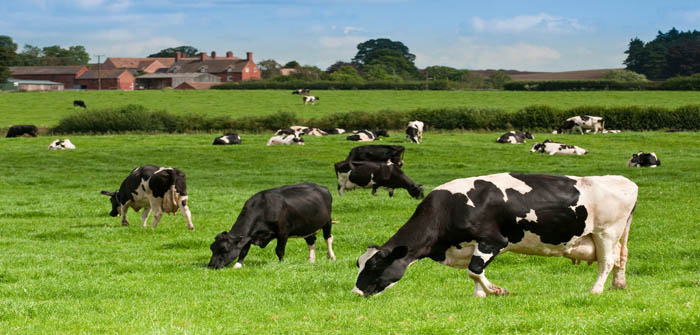The inclusion of rumen fluke figures in faecal egg count (FEC) sample results isn’t necessarily a cause for concern, according to experts in the Sustainable Control of Parasites in Sheep (SCOPS) and Control of Cattle Parasites Sustainably (COWS) groups.
SCOPS and COWS have been working hard to encourage livestock producers to use FECs to monitor liver fluke burdens in cattle and sheep, particularly as this internal parasite becomes increasingly unpredictable – and this has brought rumen fluke under the spotlight too.
Professor Diana Williams of the University of Liverpool, who sits on the COWS Steering Group, said: “Many farmers and their advisers are, quite rightly, looking at FEC sample results at the current time. This is an important element within active liver fluke monitoring. But within the SCOPS and COWS industry groups, we are keen to ensure this does not lead to unnecessary treatment of rumen fluke in sheep and cattle.
“Increasingly, laboratories will record the incidental presence of rumen fluke eggs in faecal samples, but this does not indicate a need to treat.
Professor Williams said a positive egg count only indicates the presence of adult rumen fluke in the rumen.
“On the very rare occasions that disease is caused by rumen fluke, it is due to large numbers of immature rumen fluke in the duodenum (duodenitis),” she added. “There are no specific diagnostic tests for immature rumen fluke, and they would be negative on faecal egg count.”
Facts about rumen fluke
- The detection of rumen fluke eggs only indicates the presence of adults in the rumen. In the majority of cases, it does not indicate any production loss or need to take action;
- Liver fluke remains the more important of the two fluke parasites. Co-infections of liver fluke and rumen fluke are common, but any treatment should focus on the presence of liver fluke;
- Disease due to rumen fluke is not typically caused by adults in the rumen. It is due to a large build-up of immature rumen fluke in the duodenum and is the result of a very high challenge on pasture, leading to large numbers of immature parasites in the intestine;
- If you are concerned about rumen fluke, discuss results with your vet. There are no licensed treatments for rumen fluke and the only active that can kill them (oxyclozanide) has a low safety margin and must be used carefully. Cases of toxicity, resulting in blindness, have been reported;
- Oxyclozanide can only be prescribed by a veterinary surgeon for use against rumen fluke and should only be used where there is conclusive evidence that an infestation of rumen fluke is likely to be causing a health / welfare issue;
- It is the opinion of SCOPS and COWS experts that anecdotal reports of production and/or health benefits in response to treatment of rumen fluke are unlikely to be due to removal of adult rumen fluke and much more likely to be as the result of removing a co-infection of liver fluke that may not have been reported.


